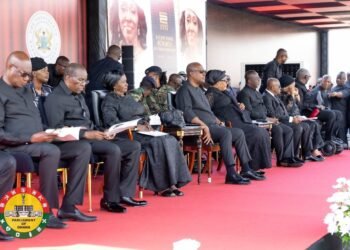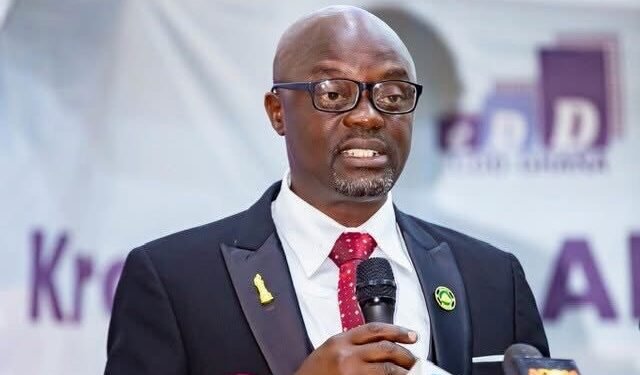The 2021 Population and Housing Census (PHC) is expected to officially end on Sunday, July 11, 2021. The 14-day nationwide exercise which started on June 27, 2021, officials say, is very much on course across all the 16 administrative regions in the country.
According to the Government Statistician, Professor Samuel Kobina Annim, data on the server as at the ninth day of enumeration, indicated that 56.6% of the expected households had been enumerated nationwide. He detailed that the completion rate ranged from 79.86% in the North East Region to 38.96% in the Greater Accra Region.
Also, the Ghana Statistical Service (GSS) Boss pointed out that 60% or higher of the households expected to be enumerated have been covered in 12 out of the 16 regions.
As a result, he noted that efforts were being made to cover those places described as ‘large enumeration areas’ on schedule, given the current completion rate. However, more days would be needed to complete the exercise there, he said.
Large enumeration areas such as the Greater Accra, Central, Eastern and Western regions would require additional days for mop-up. According to Prof Annim, an initial mop-up window would be explored from Monday July 12, to Sunday July 18, 2021, towards ensuring that all persons were counted.
“The Statistical Service is deploying targeted interventions, such as the deployment of support enumerators, and engagement with opinion leaders and community members to speed up the pace of work in these areas”.
Exercise to be completed as scheduled
Nevertheless, the Government Statistician is confident the exercise would be completed within the stipulated time. On the overall progress so far, Prof Annim said “the exercise has been smooth so far”.
He attributed the success so far to effective systems for monitoring such as the enumeration tracking dashboard, having key personnel on the ground like Field Officers, and District Data Quality Management Teams,
He also cited National Monitors and International Observers, and seamless transition from listing to enumeration, and identification of areas needing support for completion of listing as some contributory factors.
“The aim is to achieve complete coverage and quality data to ensure that no one is left behind”.
Major Challenges so far
On the challenges being encountered by enumerators, Prof Annim mentioned the inability to meet respondents during daytime due to work related activities. He also mentioned flooding, which according to him, is preventing enumerators from accessing some communities, especially overbank areas.
Others are the discovery of extinct and emerging localities, challenges of syncing data, accidents involving field officers, refusal of residents to participate in the exercise due to boundary disputes and disgruntlement with the government or specific public sector agencies.
Regarding areas with boundary disputes, Prof Annim advised residents to participate in the exercise. He assured that the Service would report the population of such areas with a footnote to indicate that there was a boundary dispute for redress. Also, the Government Statistician urged persons who were refusing the count to reconsider their decisions.
“The Census is an all-inclusive national exercise that will generate the data to be used for research, policy, and planning.
“For the next 10 years, the information from this Census will determine how our nation’s resources will be used. When people and communities are missing from the Census, resources that should be assigned to them are given to others that are counted. Therefore, all persons who spent the Census Night in Ghana should endeavour to be counted”.
The 2021 PHC will provide important information to support evidence-based implementation of the national development agenda and support the tracking of achievements of the Sustainable Development Goals and Agenda 2063 of the African Union.























